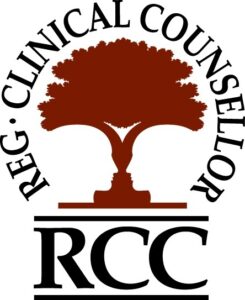Working With Kim of Positive Change Counselling
About Kim Boivin-Sonolet (she/her)
I offer a compassionate, grounded, and collaborative approach to help promote the positive change I know you’re longing for in your life. I do my best to practice in a way that is safe, knowledgeable, emotionally engaged, direct, and intuitive, while welcoming and respecting the many complex and distinct cultural, relational, sexual, religious, spiritual, and racialized identities and experiences of the people I work with.
My work is informed not only through my training and experience but also through the wisdom of my own life experience, including my own extensive personal therapy. I believe I’m able to offer better service to people I work with because I know what it feels like to be a client.
In other words, I’m not just working from a textbook.
Before working as a Counsellor/Therapist in private practice, I worked for many years with people with developmental challenges, acquired brain injuries, and youth at risk. I also worked on child protection cases, often times supporting parents to make their lives safe and stable to be able to keep their family together.
I completed my Masters of Education in Counselling Psychology at UVic. Before that, I did my Undergraduate degree in Cultural Anthropology at SFU. I became a Registered Clinical Counsellor with the BCACC in 2006. Over the years, I’ve also completed and practiced the following trainings: Assertiveness Facilitator; Gottman Couples Method; Emotionally Focused Couples Therapy (EFT); and Ego State Therapy. Since 2017, I’ve been training in and offering the evidence-based approach of Intensive Short-Term Dynamic Psychotherapy (ISTDP).
Positive Change Counselling launched in Vancouver in 2006 and it’s been growing ever since!
Here are some of my core values, beliefs, and principles about this human life that guide how I interact including how I interact in sessions with you:
- We are attachment-based creatures. We’re born into and live in attachment relationships that we are deeply impacted by. Most of us have experienced some benefits and well as injuries in our attachment bonds that of course, affect us. Our attachment injuries need attending to in order for us to heal and thrive.
- We are born into family systems and sociocultural systems that are in some ways functional and in some ways hugely dysfunctional.
- Part of our recovery process is about identifying, acknowledging, and processing our emotions and impulses triggered by the toxic conditioning we have been on the receiving end of since childhood about race, culture, gender, sexuality, class, power dynamics, how we “should” live life, etc.
- Our emotions, and our impulses that go with them, matter and how we try to avoid them or keep them out of our conscious awareness significantly matters to the quality of our lives and the quality of our relationships.
- Collaboration: I aim to do our healing work together side by side as a team.
- Strengthening the development of wise compassion, justice, and true freedom for all.
- Stages of Therapy: It’s my personal and professional ethic that good therapy is not like “going to the gym” (I’ve heard this a fair amount over the years). There’s a beginning, middle, and an end stage to therapy. How long each of those stages are is importantly tailored on an individual basis. In the process of doing therapy with me, we’ll check in openly about the stages we feel we’re in as we go. As we approach the end stage, you’ll be invited to include your feelings about it and to share anything that being stirred up in you for us to work on precisely because we’re in the end stage.
The end stage of therapy, sometimes also called “consolidation and closure”, is often the hardest and the most fruitful. It’s the stage of the therapy that can be avoided the most by both therapist and client. I see it as an important part of my work to build my capacity to be present to and to bear endings and whenever possible, to experience conscious good-byes together. You’ll be invited to do the same. If you choose to engage in that often bittersweet process, you’ll carry that strengthened capacity with you as you go forward in your life. Having said that, rest assured that if you do therapy with me and we do a conscious closure together and say good-bye, you’re always welcome to reach out to me again – for as long as I’m still practicing – for another session or another round of therapy if that need arises in your future.
This song often comes up for me in the work I do with people. I think of it as the “theme song” for Positive Change Counselling!
- I’m a Registered Member of the BCACC: www.bc-counsellors.org/
-
Mindfulness is also part of my practice, personally and in my therapy work with others, with an emphasis on using mindfulness to help increase our capacity to be present in our bodies, being more present to our emotional experience in our bodies, and being more present in the ways we relate to each other.
- Since 2017, I have included the evidence-based approach of Intensive Short-Term Dynamic Psychotherapy (ISTDP) in all my sessions with everyone I work with. From Feb 2020-Feb 2023, I completed ISTDP Core Training with Dr. Allan Abbass, Dr. Joel Town, and Dr. Ange Cooper with the Centre for Emotions and Health, Dalhousie University.
- To learn more about ISTDP, go to:
http://istdpinstitute.com/resources/intensive-short- term-dynamic-psychotherapy-an- introduction/ or
https://medicine.dal.ca/departments/department-sites/ psychiatry/research/emotions- health/patient-services.html




